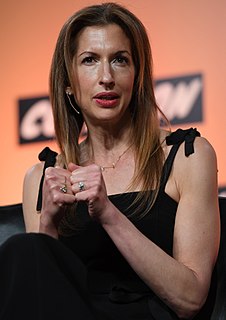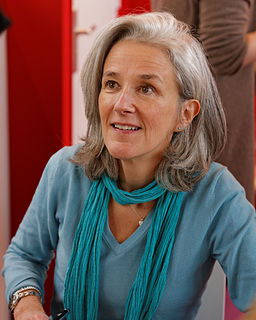A Quote by Jodie Foster
I feel at various times in my life that I've been at a point where I had to choose between a death sentence and a life sentence. And I want to live. What do I do to live? What do I do to be vital? And the answer is always creativity. The answer is always art.
Related Quotes
To hell with your cancer. I've been living with cancer for the better part of a year. Right from the start, it's a death sentence. That's what they keep telling me. Well, guess what? Every life comes with a death sentence, so every few months I come in here for my regular scan, knowing full well that one of these times - hell, maybe even today - I'm gonna hear some bad news. But until then, who's in charge? Me. That's how I live my life.
Part One: I do not exist to impress the world. I exist to live my life in a way that will make me happy. Part Two: Everybody else is free to do whatever they feel like doing, for a living. Part Three: Responsible is Able to Respond, able to answer for the way we choose to live. There's only one person we have to answer to, of course, and that is ourselves.
I have been asked so many times why I live a green life, why water conservation, why getting wells in places, why work with water organizations, why conserve water at home with double-flush toilets, why I tell my daughters, "Turn off the tap" so much. Sometimes I want to say, "I wish I knew the answer." My answer really is: I don't understand why everyone doesn't feel this way.
Every sentence has a truth waiting at the end of it and the writer learns how to know it when he finally gets there. On one level this truth is the swing of the sentence, the beat and poise, but down deeper it's the integrity of the writer as he matches with the language. I've always seen myself in sentences. I begin to recognize myself, word by word, as I work through a sentence. The language of my books has shaped me as a man. There's a moral force in a sentence when it comes out right. It speaks the writer's will to live.
The first sentence of the truth is always the hardest. Each of us had a first sentence, and most of us found the strength to say it out loud to someone who deserved to hear it. What we hoped, and what we found, was that the second sentence of the truth is always easier than the first, and the third sentence is even easier than that. Suddenly you are speaking the truth in paragraphs, in pages. The fear, the nervousness, is still there, but it is joined by a new confidence. All along, you've used the first sentence as a lock. But now you find that it's the key.
If you want to live in Tennessee, God bless you, I wish for you a long life and starry evenings. But that is not where I want to live my life. I want to live my life in Carthage, in Athens. I want to live my life in Rome. I want to live my life in the center of the world. I want to live my life in Los Angeles.
God knows our despair. God wants His chosen people to live in peace. God loves life, cares less about death. We need to live. I want to live, I want my children to live. Everyone I know wants to live. You have to ask yourself what is more important to you, life is death. What is this world about - life or death?
It's a complicated process being so bilingual. Sometimes it's a mere word or sentence that comes to me, if I'm writing the book in English, in French. It's not always easy to deal with. Sometimes even during an interview somebody can ask me a question in English that I want to answer in French and vice versa - that's the story of my life!
Birth leads to death, death precedes birth. So if you want to see life as it really is, it is rounded on both the sides by death. Death is the beginning and death is again the end, and life is just the illusion in between. You feel alive between two deaths; the passage joining one death to another you call life. Buddha says this is not life. This life is dukkha - misery. This life is death.


































